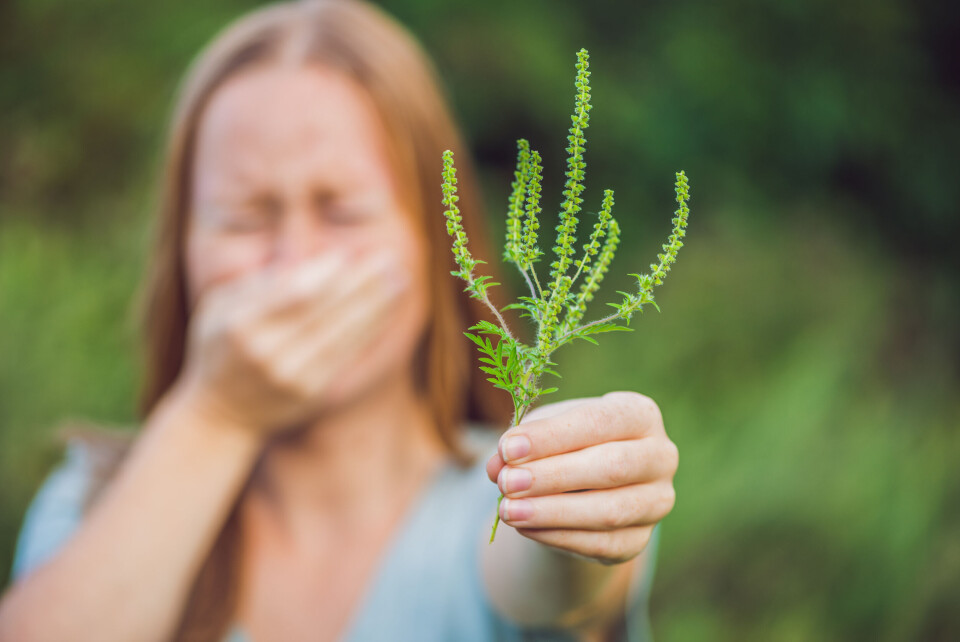-
La Voie Bleue: European Cycle Route of the Year is in France
700km bike path linking Luxembourg and Lyon has been crowned winner of the 2026 title
-
MAP: See how your location in France affects online food shop prices
New analysis shows how your shop compares on average
-
Further sightings of processionary caterpillars in France prompt action from local authorities
Caterpillars have arrived early after mild winter
Ragweed pollen allergies arrive early in France this year
The highly-allergenic plant spreads particularly fast in warm weather, and the higher temperatures this summer have accelerated its arrival

Allergenic ragweed pollen, also known as ambrosia pollen, has arrived early in France this year due to the summer’s high temperatures.
The pollen is especially common in Auvergne-Rhône-Alpes, but it is also found in other regions.
It arrived around a week early this year, said national air monitoring agency le Réseau national de surveillance aérobiologique (RNSA). This is due to the high temperatures this summer, which have already included three heatwave episodes.
Read more: France’s fourth heatwave of the year forecast for this week
Ragweed pollen is especially allergenic, and can quickly cause eye irritation, a running nose, and breathing difficulties in people who are susceptible to it.
Just 10 grains of pollen in one metre cubed of air can cause severe allergic reactions in humans, including in the nose, throat, and eyes, and can even aggravate asthma. In rare cases, it can also cause a rash or aggravate eczema.
Samuel Monnier, an engineer at RNSA, told BFM Lyon: "This is a distinctive characteristic of ragweed. It only takes a few grains of pollen for symptoms to appear in allergic people.”
Health agency Anses (l’Agence nationale de sécurité sanitaire de l’alimentation, de l’environnement et du travail) estimates that around 1 million to 3.5 million people in France could be susceptible to the pollen, especially in Auvergne-Rhône-Alpes, where up to 15% of the population is thought to be affected.
High temperatures in summer help the pollen to spread.
Mr Monnier said: “Unfortunately, it is spreading in other regions, like in Bourgogne-Franche-Comté, and Nouvelle-Aquitaine. We can also find it in Occitanie and in the north of the PACA region.”
So far, the north and east of the country, as well as the Mediterranean coastal regions, are much less affected.
In a statement, the RNSA said that August 9 would be “the first day when the concentration of ragweed pollen in the air should be enough to cause a risk of allergy in the Lyon region for the most sensitive people".
The pollen peak should occur about 20 days later.
He advised that people who are allergic should:
-
Consult a doctor or allergy specialist to treat symptoms
-
Avoid drying washing outside
-
Rinse hair every evening before bed
-
If possible, rip up the plant at its roots (wear gloves to do so)
It comes after Anses and the regional health agency (Agence régionale de santé, ARS) Auvergne-Rhône-Alpes have each led campaigns against the plant in recent years and months.
People can also report sightings and areas of the plant at the Signalement Ambroisie website, on the app, by email address (contact@signalement-ambroisie.fr) or telephone number (09 72 37 68 88).
Related articles
Plan against allergenic ragweed launched in south of France
Allergies in France: Do anti-Covid masks protect against pollen?
























